Implementation and Analysis of Hash Tables and Collision Resolution
VerifiedAdded on 2020/06/06
|7
|1158
|304
Homework Assignment
AI Summary
This assignment solution covers the implementation and analysis of hash tables and collision resolution techniques. The solution includes several tasks: Task 1 involves testing the basic functionalities of a hash table class, including setting, getting, and checking for the presence of items. Task 2 presents table size analysis. Task 3 explores collision counts with a custom class and hash function. Task 4 compares linear and quadratic probing for collision resolution, providing collision counts. Task 5 implements a chained hash table, demonstrating insertion. Task 6 focuses on quadratic probing with a custom hash function and collision counting. Finally, Task 7 calculates word frequencies in text files within a directory, demonstrating practical application. The solution is implemented in Python.
1 out of 7
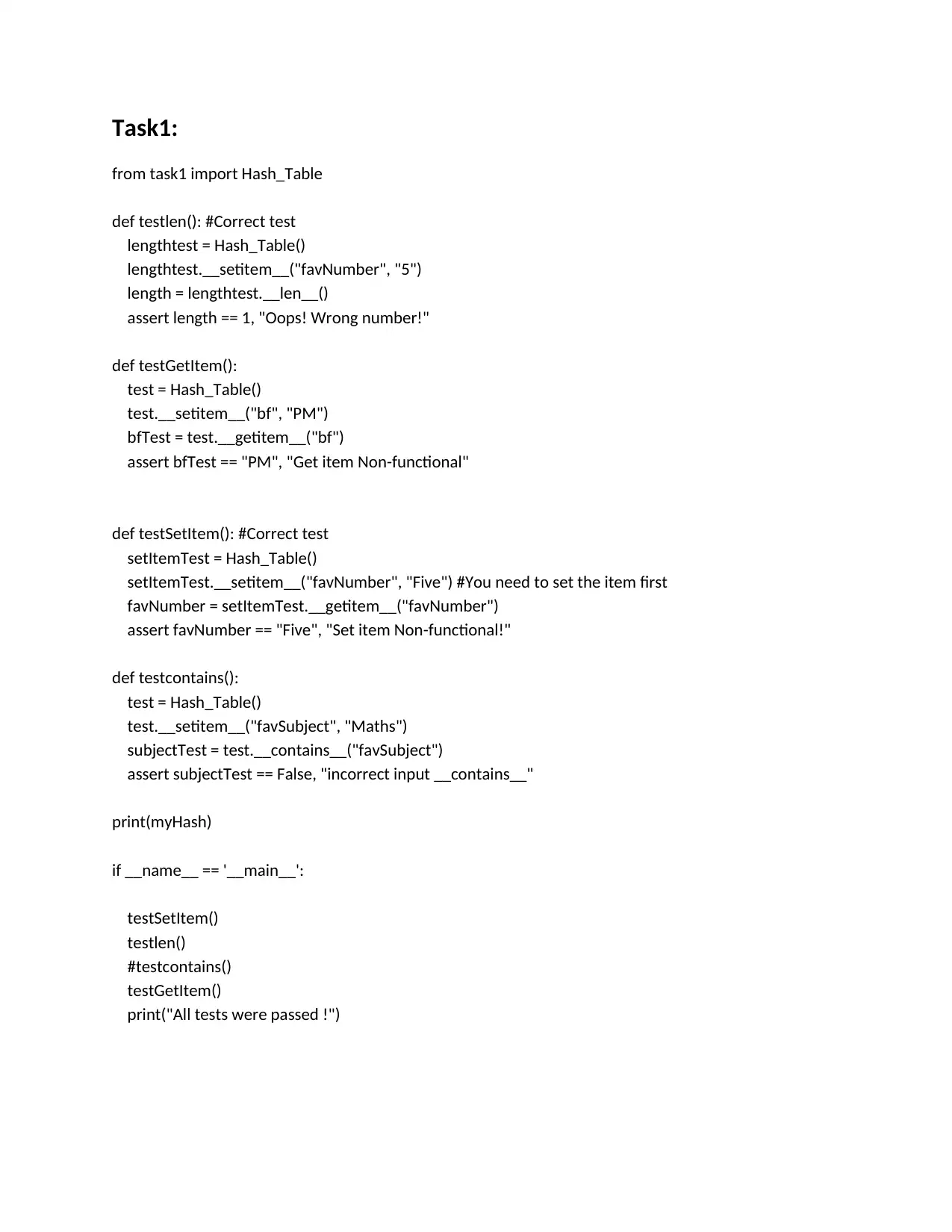
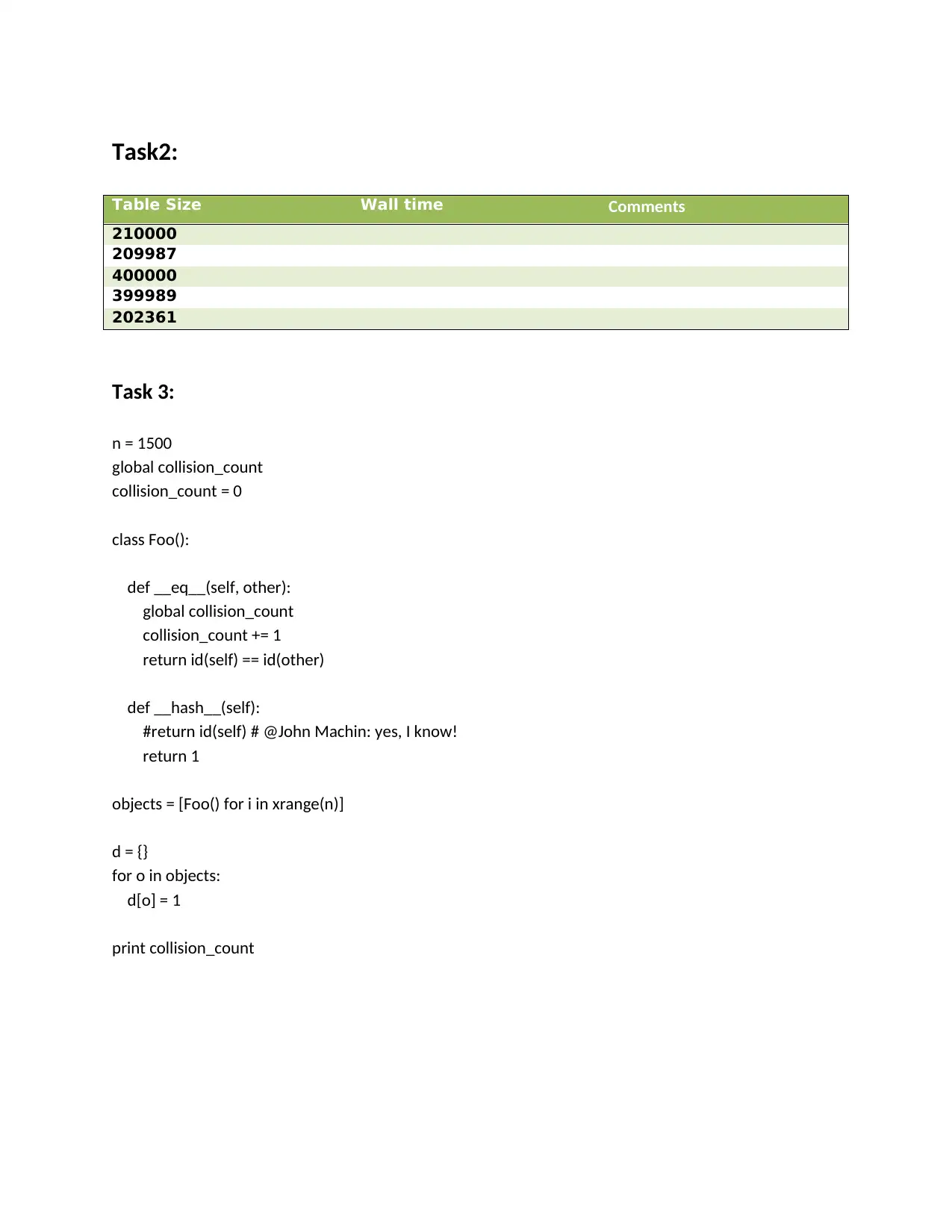
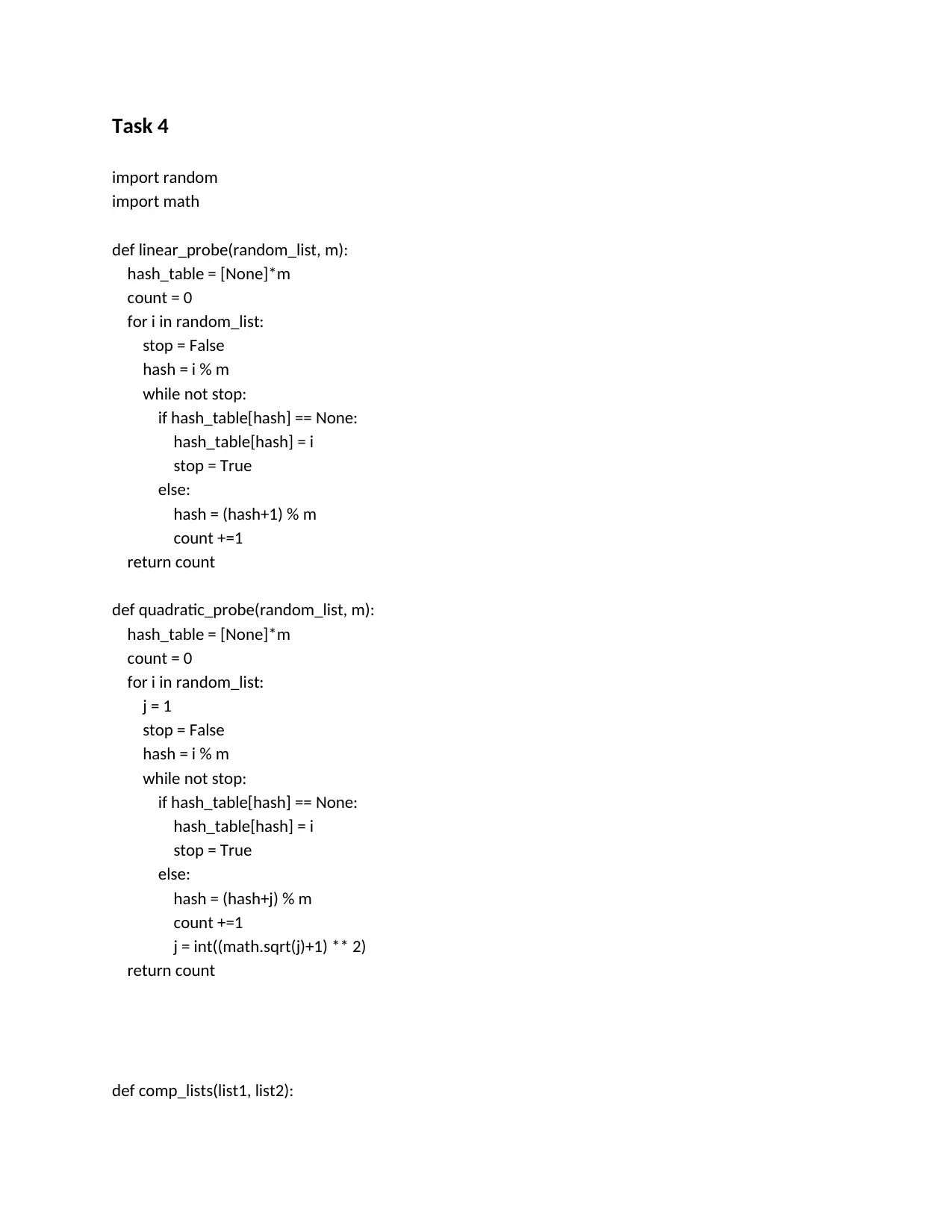

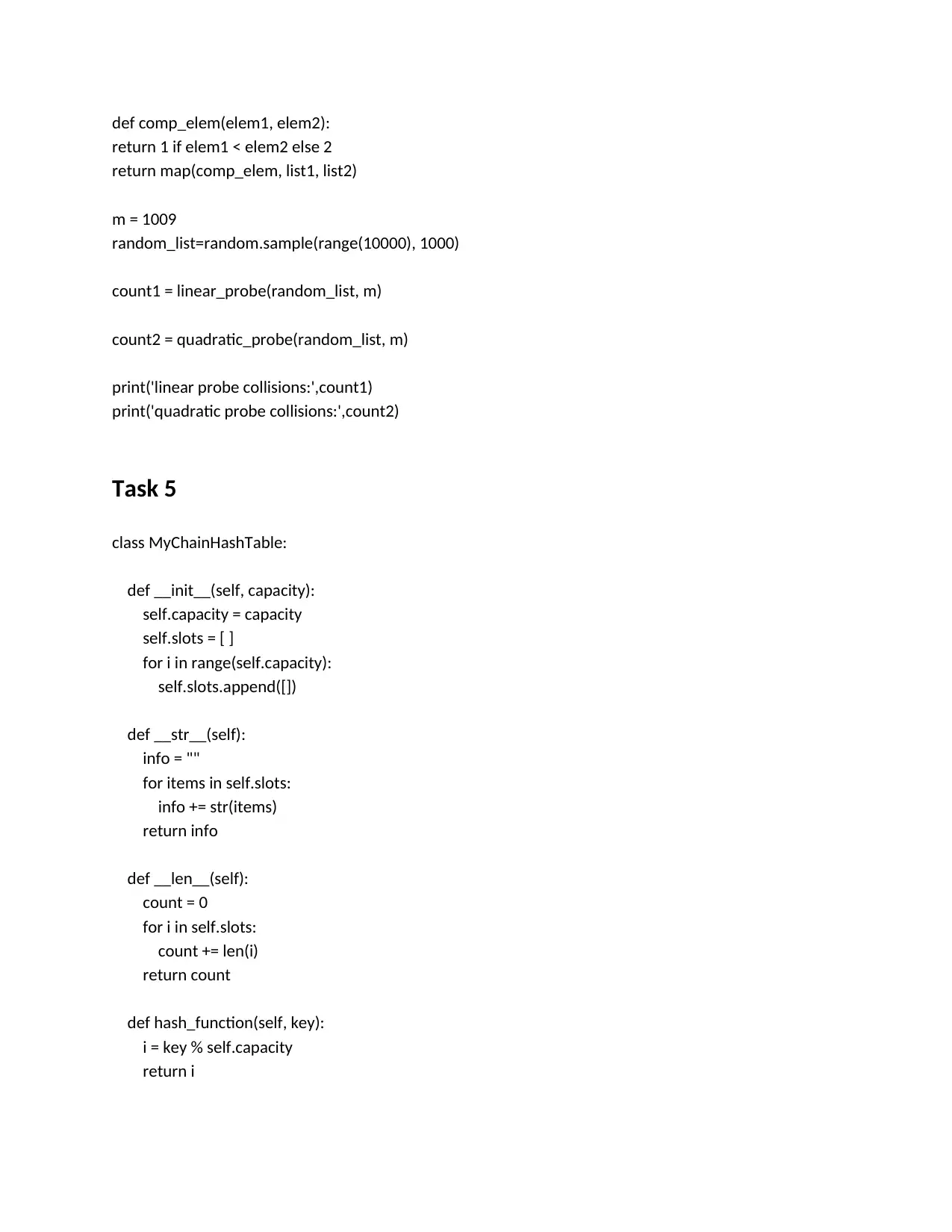
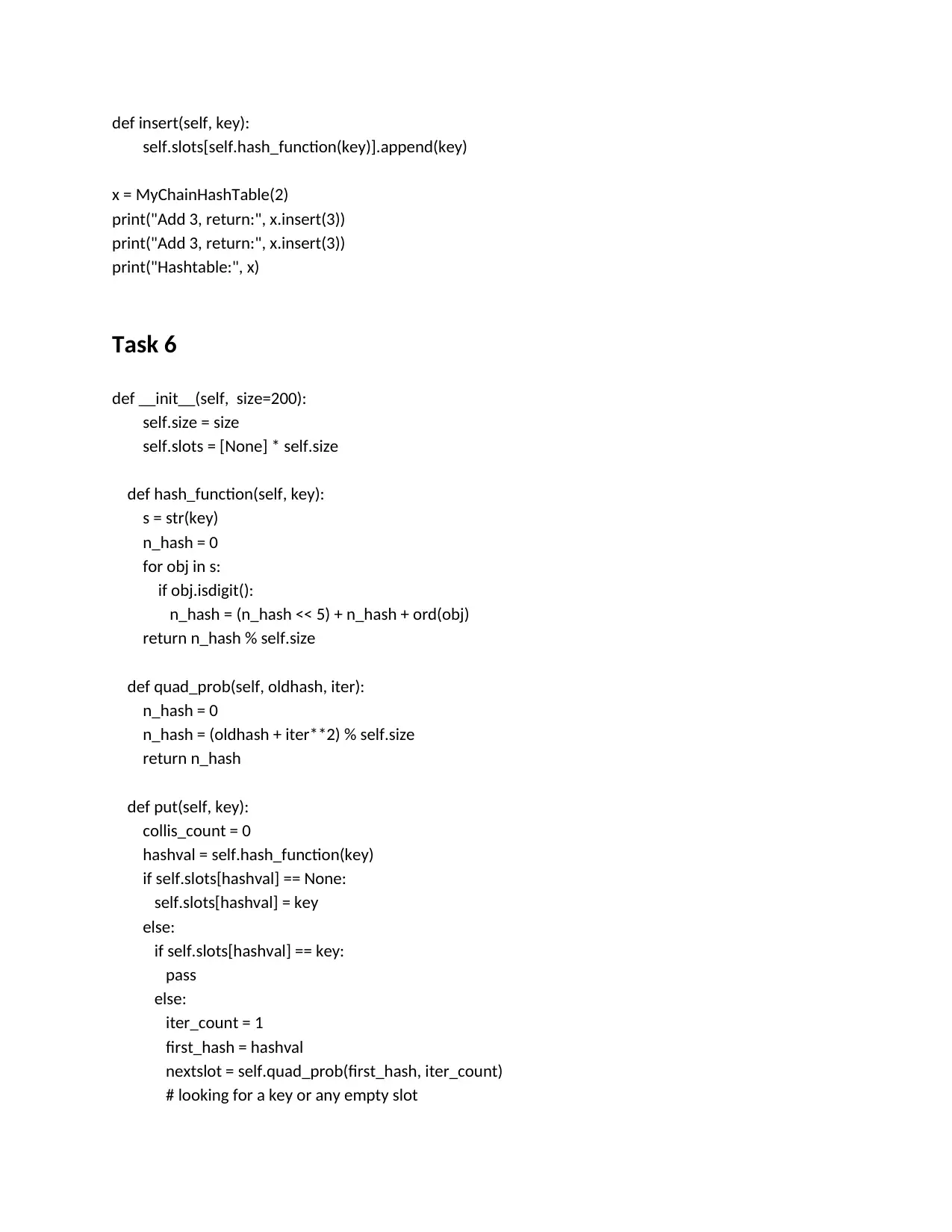
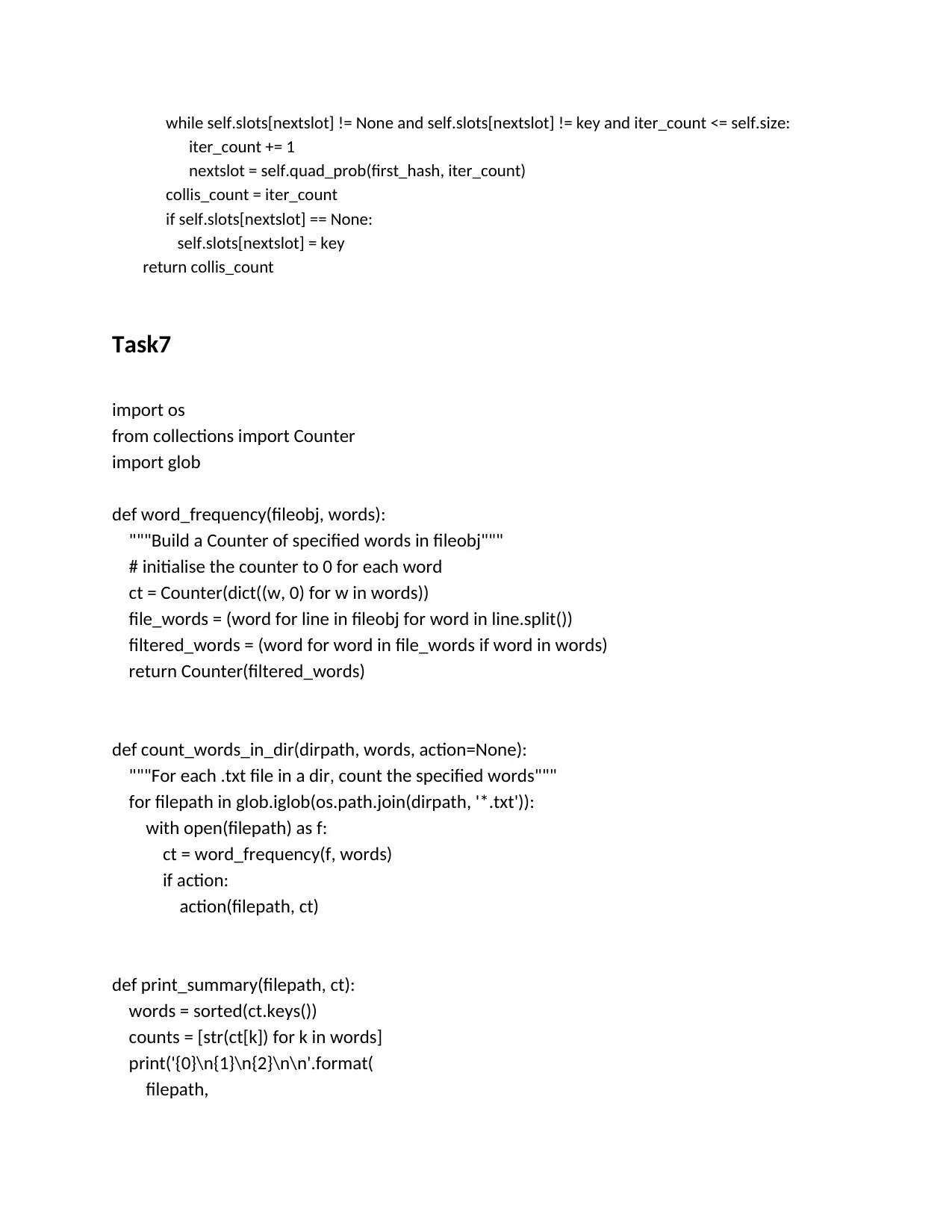


![[object Object]](/_next/static/media/star-bottom.7253800d.svg)